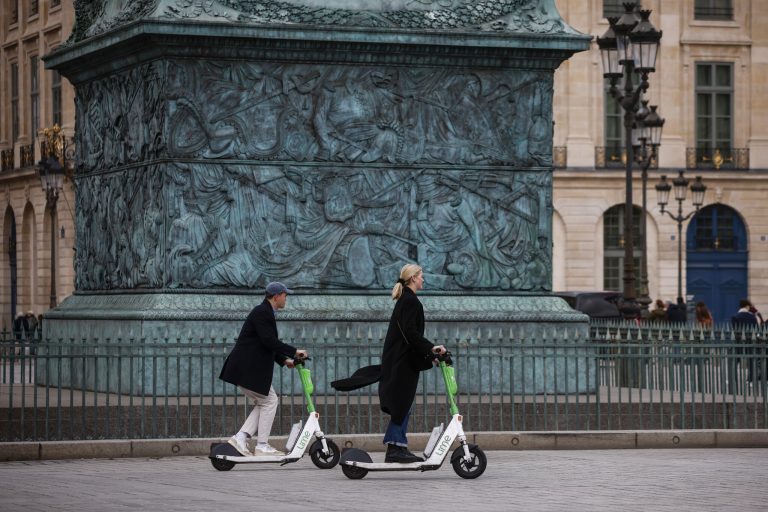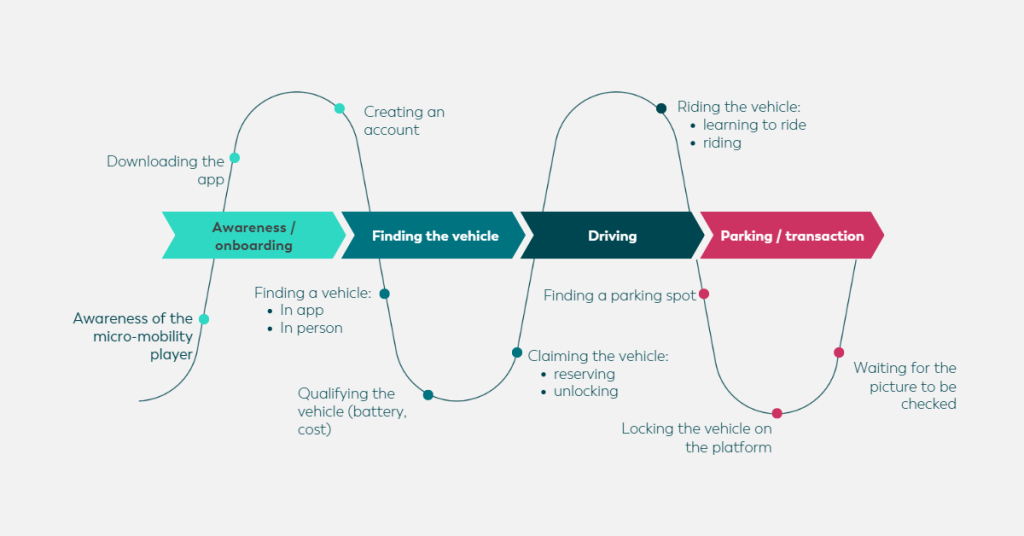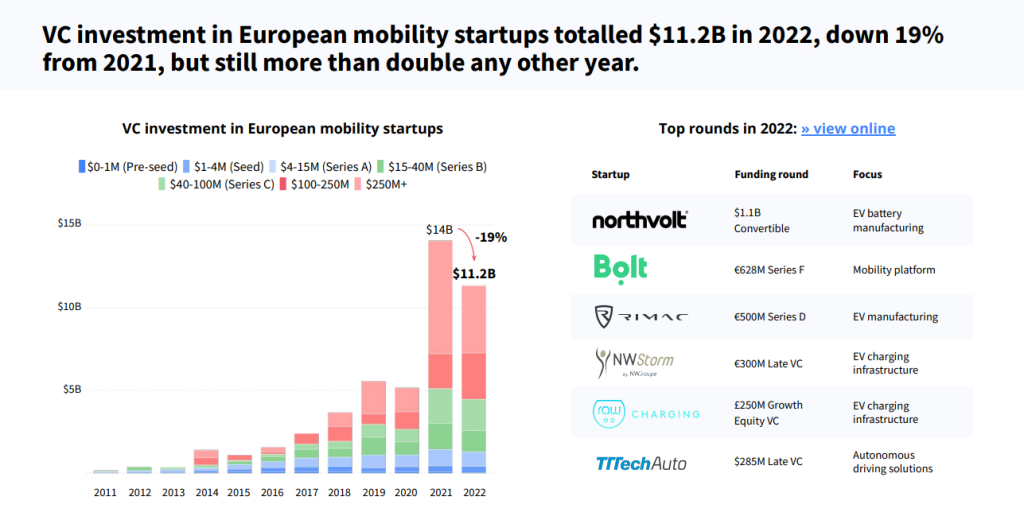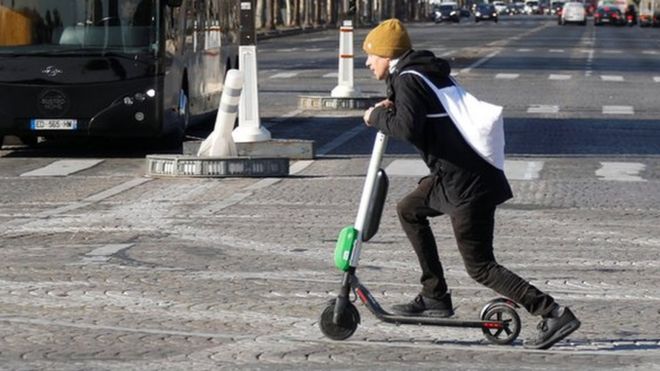The people of Paris voted on April 2nd on whether or not to ban e-scooter rentals from the city. This marks the first time a European capital has taken such action, with the mayor describing the services as “highly divisive.”

An overwhelming majority of Parisians who took part in a referendum on rental electric scooters have voted to ban (89% of voters) the devices from the streets of the French capital.
This comes as major news as Paris was one of the largest markets for rental scooters in the world, recording around 20 million trips on 15,000 scooters in 2022.
E-scooter sharing services have already been banned in Barcelona, and the Netherlands does not allow any e-scooters on their roads. In many European cities, operators must now obtain a license or win a tender in order to put their vehicles on the streets. Meanwhile, councils in the UK are currently conducting trials to determine how people feel about shared e-scooter services in their communities.
Many municipalities have started to implement regulations on shared micro-mobility vehicles. These include for instance public safety and platform operations regulations on:
Whether it’s providing 24/7, omnichannel, multilingual customer service, helping local partners and operators prioritize operations & maintenance, or ensuring vehicle parking verification in accordance with city regulations, The Nest by Concentrix provides the best possible customer experience, which is crucial given the numerous touchpoints customers interact with while using the service. By prioritizing customer satisfaction, operators can set themselves apart from the competition and build long-lasting relationships with their customers.
Interacting with a micro-mobility player involves a remarkable number of touchpoints, before, during, and after the ride.

Some of the touchpoints that consumers may encounter when interacting with a micro-mobility player include booking the ride, finding and unlocking the vehicle, riding the vehicle, parking it, paying for the ride, and leaving feedback. Each of these touchpoints represents an opportunity for the player to make a positive impression on the consumer and build loyalty. A micro-mobility player should make sure to provide a seamless and 5-star customer experience at every touchpoint as consumers can easily get frustrated (for instance if they get overcharged even though they had properly parked the vehicle) and choose another provider instead. In fact, the switching costs to change providers are relatively small.
In today’s highly competitive market, with increasing regulations, differentiating oneself from competitors is crucial.

Shared mobility refers to transportation services and resources that are shared among users, either simultaneously or sequentially. This encompasses various modes of transportation, including micro-mobility such as bike-sharing and scooter sharing, automobile-based modes like carsharing, on-demand rides, and micro-transit, as well as commute-based modes such as carpooling and vanpooling.
Based on Vantage Market Research, the Global Shared Mobility Market was valued at USD 169.5 Billion in 2022 and is projected to reach a value of USD 493.6 Billion in 2030 at a CAGR (Compound Annual Growth Rate) of 16.5% over the forecast period.
Dealroom gave a closer look at the mobility startup ecosystem and it seems like, after a strong first half of the year, mobility startup funding has slowed considerably in H2 2022.
In fact, VC investment in European mobility startups reached $11.2B in 2022, down 19% from 2021, but by far the 2nd most active year to date.
Although investments seem to have decreased in a difficult economic year for all industries alike, the shared mobility industry had experienced rapid growth since Covid-19, in particular the micro-mobility sector.
New players have started to emerge such as Donkey Republic, Felyx, Whoosh.bike, Cooltra, and so many others to respond to consumers’ growing need for transportation outside of public commutes.
In 2022, 7 new European mobility unicorns were created, such as Allego, einride, Volcopter, instabox, NW storm, RImac and TTTech Auto.
As cities continue to expand and traffic congestion worsens, the demand for sustainable and convenient transportation solutions has surged. Micro-mobility players are at the forefront of this trend, providing affordable and eco-friendly options for people to move around urban areas. However, the industry faces a variety of challenges, including safety concerns, regulatory hurdles, and competition from other transportation modes.
To succeed in this space, micro-mobility companies need to focus on building a safe and efficient platform for all riders as well as prioritize their customer experience. This is where The Nest by Concentrix can provide micro-mobility players with a seamless and safe customer journey for micro-transit rides anytime and anywhere.
Rider satisfaction is critical for micro-mobility players, and this means ensuring speed and convenience while reassuring the user. Additionally, it is essential to make sure that all riders receive the support they need, regardless of peak levels. This is particularly important in case of emergencies or other unexpected situations. Micro-mobility players must be available at all times and in all locations. By engaging with riders, listening to their feedback, and responding to their needs, players can build trust and loyalty. This not only boosts customer satisfaction but also encourages word-of-mouth promotion, increasing demand and driving sales.
The Nest by Concentrix, outsourcing provider, can support riders with the following:
User safety is of utmost importance for micro-mobility players. It is essential for building trust with riders and maintaining a positive reputation in the market. Effective fleet management plays a critical role in ensuring user safety.
The Nest by Concentrix can support players with the following:
Platform management is critical for micro-mobility players because it is directly linked to the safety of their users. By securing their platform and community, micro-mobility players can ensure that their riders are protected at all times and comply with local regulation.
The Nest by Concentrix can support players secure their platform and community with:
Overall, the future of e-scooters in European cities may be uncertain, but the shared mobility industry as a whole is poised for continued growth. By leveraging tools like The Nest to improve customer experience and ensure safety, mobility operators can stay ahead of the curve and build successful, sustainable businesses.

The startup has reinvented how people travel within cities by offering shared electric micro-mobility options as an alternative to traditional forms of urban mobility. These vehicles include electric scooters, bikes and mopes that allow users to get around in a smart, safe and sustainable way.
Due to rapid growth and international expansion (20+ countries) they needed an experienced and reliable CX service provider support their customers 24/7 in both local language and English. It also needed a partner that could ramp up the team when facing peaks and down during low seasonality such as winter.
We directly designed a model of customer and rider support that could grow as the business grows but also according to seasonality, for better flexibility and agility.
As such, we set up a team of 80 multilingual game-changers to cover all requests and enquiries in French, English, Arabic and German on various channels (voice, chat, email). The team covered rider onboarding as well as customer service and compensation management.